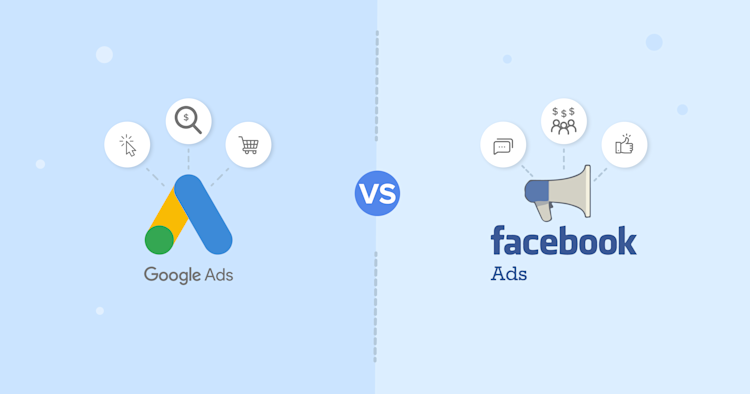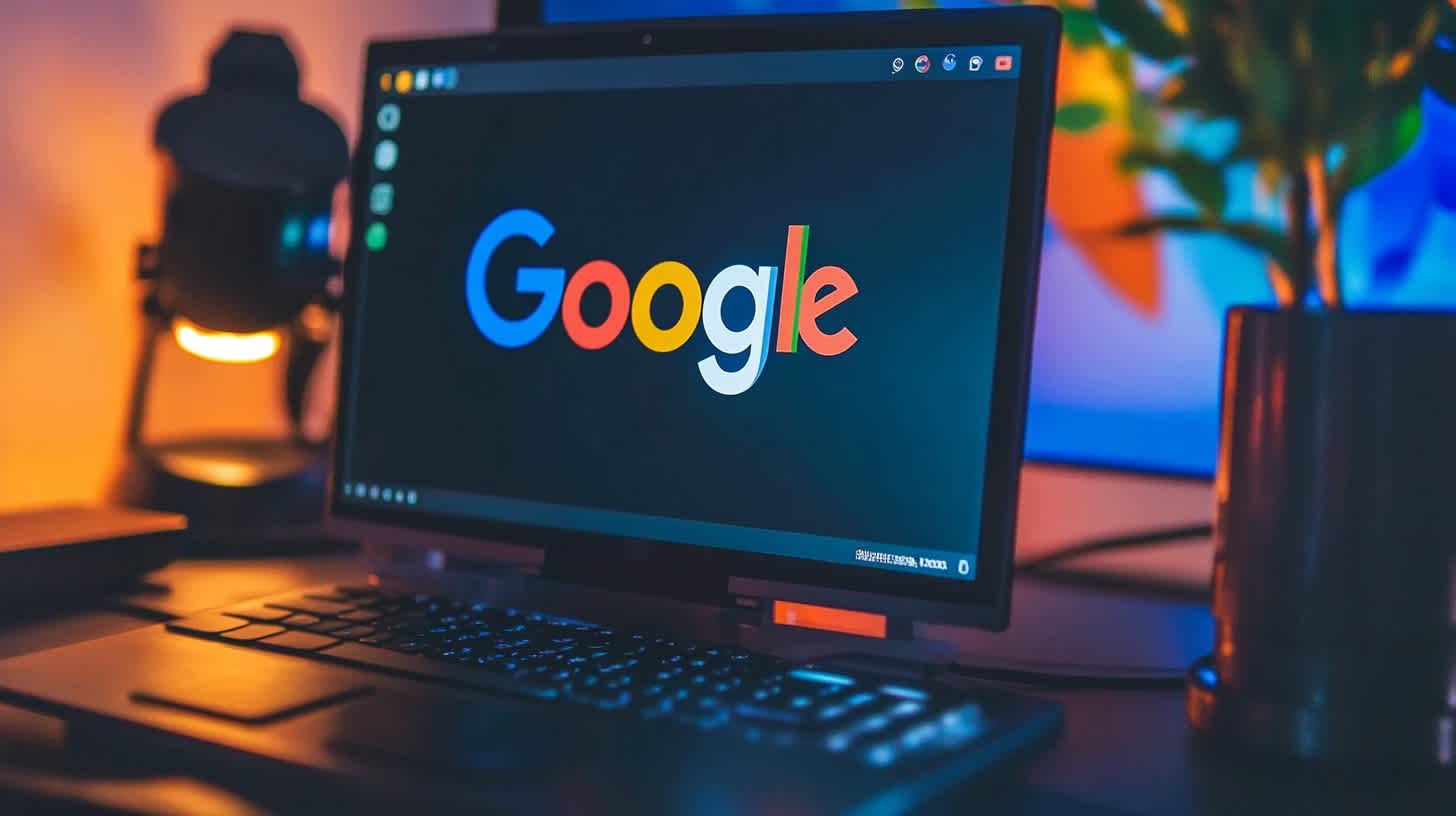Every established business and aspirant entrepreneur understands the phenomenal power of digital advertising. Two platforms towering above others in this arena are Facebook Ads and Google Ads. They're the industry's superpowers, providing varied yet potentially effective solutions for online marketing. While many contemplate the Facebook Ads vs Google Ads debate, the truth remains that both have multifaceted attributes that cater to different business needs. This blog aims to decode the actualities of these advertising platforms, tapping into their core functionalities, areas of application, and how they can shape your marketing strategy.
Understanding Google Ads
Google Ads, formerly known as Google AdWords, is a pay-per-click (PPC) advertising platform. Notably, it doesn't work on a traditional advertising model. Instead, it functions as an auction, where businesses bid on keywords used within Google searches. Your ads appear when users search for these keywords.
Features of Google Ads include:
- Search Network: Allows ads to appear in Google search results
- Display Network: Showcases visual display ads across millions of websites
- Google Shopping: Enables e-commerce businesses to advertise and sell their products directly through Google
Google Ads: A Deeper Dive
Google has a vast network, hence, the potential reach of Google Ads is massive. Brand awareness, lead generation, or online conversions– you name it, you get it with Google Ads. Geared more towards intent-driven audiences, Google Ads proves exceptional for businesses offering products or services that users actively seek.
For example, if you run a business selling kitchen appliances, potential customers may search for 'best kitchen mixers' on Google. With Google Ads, you can bid on this keyword to ensure your ad appears amongst Google's search results.
But remember, Google Ads operates on a bidding system, and top spots are secured by brands bidding highest for these keywords. Therefore, it's crucial to optimize your ad content and design an effective bidding strategy to get the most from your Google Ads.
Unraveling Facebook Ads
Unlike Google Ads, Facebook Ads are not intent-driven but are more focused on interest and behavior targeting. Facebook is a treasure trove of personal data, allowing businesses to create highly specific audience profiles for targeted advertising.
Facebook Ads platform incorporates:
- Custom Audience: Enables brands to reach out to existing customers or people who've interacted with them
- Lookalike Audience: Matches characteristics of your existing customers to find similar people on Facebook
- Detailed Targeting: Refines audiences based on data such as interests, behaviors, demographics, etc.
Exploring the Depths of Facebook Ads
Facebook Ads can be a perfect tool for brands looking to build awareness and expand their customer base. Its advanced targeting options allow advertisers to get quite granular with their audience selection.
If you're a local bookstore, for instance, you might target 21-35-year-olds in your city who've expressed an interest in reading. By being hyper-specific with your audience, you are reaching the people most likely to engage with your products or services.
With Facebook Ads, you're also acquiring a visual platform to showcase your offerings. Rich media formats (videos, images, interactive slideshows) can give a dynamic edge to your campaigns, making them more engaging and compelling.
Facebook Ads vs Google Ads: Which is the Right Choice for You?
So, should you pick Facebook Ads or Google Ads? The answer isn't cut and dry since both platforms have unique aspects and are suited to different marketing scenarios.
If you're chasing instant results and targeting users searching specific keywords or phrases, Google Ads might be your best bet. It's ideal for businesses that want to reach an audience with existing intent to buy their product or service.
On the other hand, if your primary goals include brand recognition, customer engagement, and long-term customer acquisition, Facebook ads could serve you better. With advanced audience targeting and visually appealing ad formats, Facebook can be instrumental in your brand-building efforts.
Frequently Asked Questions about Facebook Ads Vs Google Ads
How do Google Ads and Facebook Ads target audiences?
Google Ads target audiences based on the keywords they use in their search queries, their location, the websites they visit, and the demographics Google has about them. On the contrary, Facebook Ads targets users based on their interest, behaviors, demographics, connections, and more, which Facebook collects from the information users provide in their profiles and through their interactions on the platform.
Which is cheaper, Facebook Ads or Google Ads?
The cost of advertisements varies on both platforms, depending on several factors such as the industry, competition, quality of the ad, and target audience. However, on average, clicks on Google Ads tend to be more expensive than Facebook due to the high competition.
Is it accurate to say that Facebook Ads are for brand awareness while Google Ads are for conversion?
While it's true that many businesses use Facebook Ads primarily for brand awareness because of its extensive targeting capabilities, it doesn't mean that it's ineffective for conversion. Similarly, while Google Ads are often used for conversion purposes, they can also be used for brand awareness. The effectiveness of both platforms for brand awareness or conversion depends on your ad strategy.
Can I use both Google Ads and Facebook Ads together for my business?
Absolutely. Many businesses use both Google Ads and Facebook Ads together to maximize their online presence. The two platforms complement each other's weaknesses and leverage their own strengths. You can use Google Ads to reach people actively searching for your products or services, and Facebook Ads to target potential customers based on their interests and behavior.
What are the key performance metrics for Facebook Ads vs Google Ads?
For both Facebook Ads and Google Ads, businesses generally look at the Click-Through-Rate (CTR), Conversion Rate (CVR), Cost per Click (CPC), Cost per Acquisition (CPA), and Return On Ad Spend (ROAS), among others. However, because of the difference in the nature of the two platforms, you might be looking at some additional metrics, like impressions and reach for Facebook Ads and Quality Score for Google Ads.
How does the ad creation process differ between Facebook Ads and Google Ads?
The ad creation process on both platforms is largely similar, involving steps like defining your objective, selecting your audience, setting your budget and schedule, creating your ad, etc. However, there are also some differences. For example, Google Ads focuses more on keywords and search terms, whereas Facebook Ads puts a heavy emphasis on visuals and user demographics.
Which provides a greater ROI - Google Ads or Facebook Advertising?
The Return On Investment (ROI) will depend heavily on your business type, target audience, ad quality, and how well you optimize your campaigns. Each platform has potential to provide a significant ROI, but it often comes down to the specifics of the campaign and business. Therefore, it's best to test both platforms to see which one works best for your business before making a decision.
How often should I review and update my Facebook Ads or Google Ads?
It's good practice to monitor your ads daily to see if they're performing well and to make necessary changes. But in terms of a complete review and update, doing it weekly or bi-weekly should be sufficient for most businesses. Monitoring your ads regularly will help you identify opportunities for optimization and catch any issues early before they become costly mistakes.
Facebook Ads
Pros
Wide range of audience
Facebook Ads has an extensive user base that spans different ages, countries, and demographics. This broad audience provides a great potential for businesses to reach users they might not normally connect with through traditional advertising channels.
Better demographic targeting
Facebook allows advertisers to target users based on their interests, behaviours, and even connections. This feature even gets as granular as letting advertisers target audiences based on recent life events or behaviours.
Lower average cost per click (CPC)
Based on numerous studies, it's found that Facebook has a lower average cost per click than Google. However, these costs can vary depending on the industry and the target audience, making it an affordable option for small businesses with limited budget.
More visual ad format
Facebook's ad formats are widely visually-based, which are easily consumed by the audience. It's also been shown that users respond better to visual content, making Facebook an ideal platform for brands that want to showcase products or create visually-engaging campaigns.
Cons
Less intent-driven
Unlike Google, people on Facebook are not actively searching for products or solutions to their problems. This means the users may not be at the right stage in the buying process, leading to lower conversion rates compared to Google Ads.
Time-consuming
Facebook Ads require a lot of time to get right. Advertisers need to spend significant effort designing and testing different creatives, marketing messages, and audience targeting strategies to find what works best.
Privacy concerns
Following numerous privacy scandals and data leaks, a percentage of the audience is more skeptical about the platform. This skepticism may prevent users from clicking on ads or even cause them to use ad-blockers.
Google Ads
Pros
Intent-driven audience
People use Google to search for information, products, and services, meaning they have a certain level of intent when they see your ad. This higher intent can lead to better conversion rates, making Google Ads ideal for businesses that aim to generate immediate sales.
Larger reach
With Google Ads, you can potentially reach anyone who uses the internet. Google's network includes their search engine, YouTube, Gmail, and millions of other websites that show Google ads. This vast network provides advertisers with an unprecedented reach.
Reporting and analytics
Google offers comprehensive analytics tools that break down your ad’s performance and the behaviors of the customers interacting with it—information you can use to refine and optimize your advertising efforts.
Cons
High competition and cost
Google Ads has become a staple platform for many businesses, leading to higher competition. Advertisers can end up in bidding wars for keywords, pushing prices upward and making cost-per-click (CPC) or cost-per-impression (CPM) significantly more expensive than on Facebook.
Complex platform
Google Ads platform is more complex and has a steeper learning curve compared to Facebook Ads. From setting up a campaign, selecting keywords, to optimizing your ads, there is a lot of work to be done.
Less personal
While Google Ads is getting better at target audience selection, its main strength lies in targeting based on user behaviour and searched keywords rather than personal attributes or interests. This difference makes Google Ads a little less personal than Facebook Ads. It might not be the best option for companies trying to foster a strong, personal connection with their audience.
Summary
Facebook Ads and Google Ads both have unique strengths and can play a crucial role in a company's overall digital marketing strategy. While Facebook Ads are ideal for targeting specific demographics and boosting brand visibility, Google Ads focus on optimizing keyword search and capturing the audience who are actively searching for similar products or services. Facebook Ads vs Google Ads - it's not about choosing one over the other but understanding both their values and leveraging them to fulfill your unique business goals.
If your aim is mass outreach or increasing brand awareness, Facebook Ads can help you tap into its vast user base. But, if you're trying to reach customers who are in active buying mode, Google Ads will serve you better. Thus, the Facebook Ads vs Google Ads choice depends on your strategy and ultimate business goal. Remember to constantly monitor, analyze and optimize your advertising efforts on each platform to ensure you're getting the maximum ROI.
Lastly, both Facebook Ads and Google Ads are highly powerful tools that, when used correctly, can significantly augment your online presence and sales. The Facebook Ads vs Google Ads debate isn't about which is better overall, but about identifying which platform will better enable you to hit your specific targets. Combine the strengths of both these platforms to create a comprehensive, robust, and effective online marketing strategy for your business.
About WebPerfex
WebPerfex is a premier web design and marketing firm located in the heart of Sacramento, CA. Our talented team is dedicated to creating engaging, dynamic digital solutions that captivate audiences and drive results. With a blend of creativity and technical expertise, we design, develop, and optimize eye-catching, user-friendly websites and execute cutting-edge digital marketing strategies. We love helping local businesses thrive online, and we take pride in our reputation for exceptional customer service. Connect with us today and let’s create something extraordinary together!




